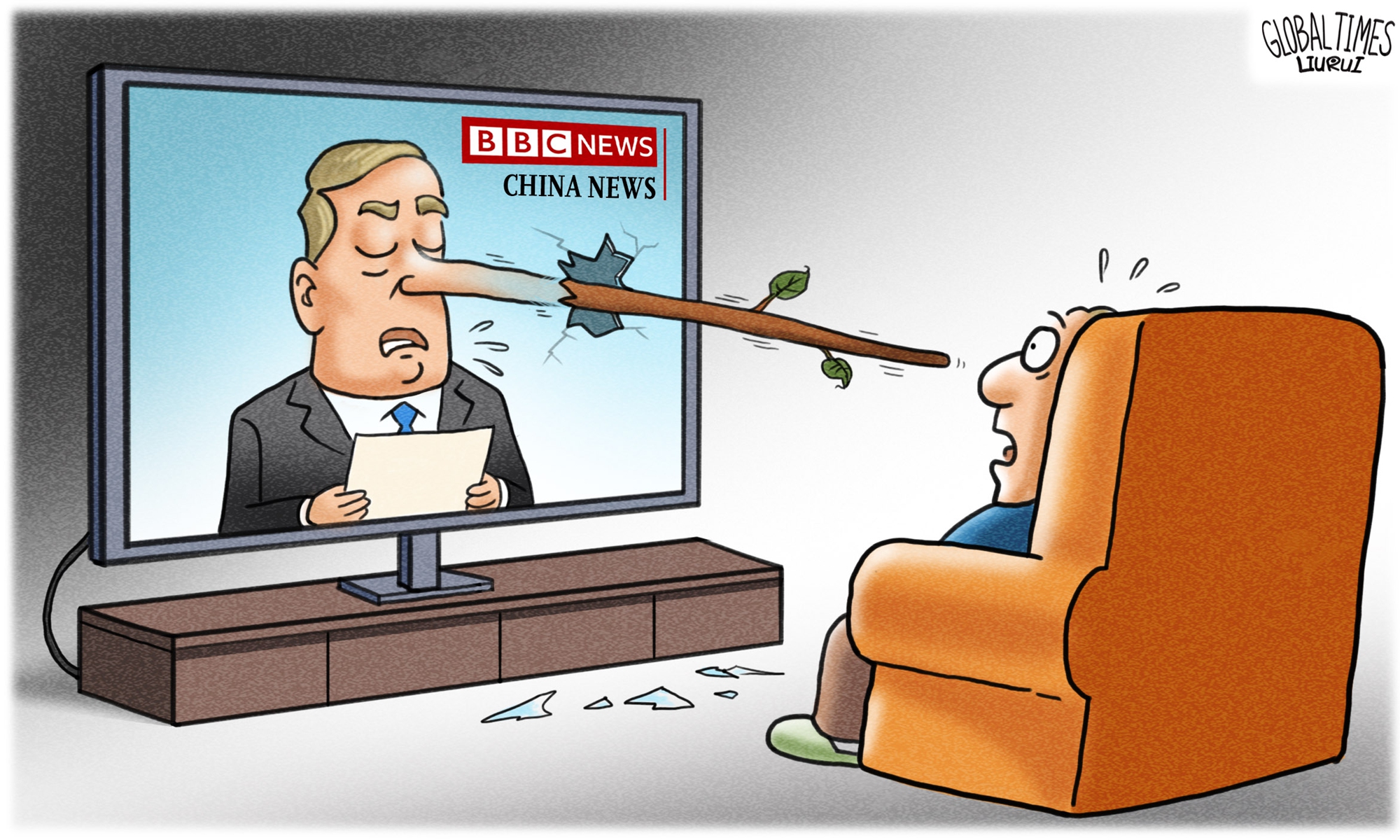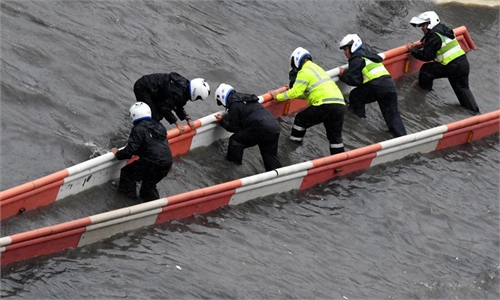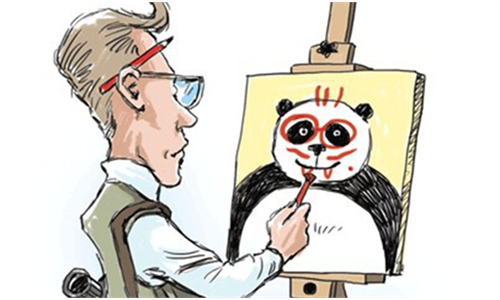Hyping about foreign journalists being ‘attacked’ in China shameful: Global Times editorial

Fake news is like Pinocchio's nose, the more you lie, the longer it grows. Illustration: Liu Rui/GT
It is not unanticipated that Western media made a huge fuss about two Western journalists questioned by a crowd in Zhengzhou, Central China's Henan Province. Mathias Boelinger, a journalist from the German public broadcaster Deutsche Welle (DW), called Chinese people who questioned him a "mob," while BBC on Twitter called on the Chinese government to stop the "attacks" on foreign journalists. In a statement on Tuesday, the Foreign Correspondents' Club of China demanded that the Chinese government fulfill its promise to protect the rights of foreign journalists in China. Reporters Without Borders also said it was "appalled" by the recent harassment of foreign journalists in Zhengzhou.What happened in Zhengzhou was a small and simple incident, and none of the foreign reporters were attacked. But it has been hyped by the Western media as big news. This incident has further confirmed that it is reasonable for the Chinese public to be strongly dissatisfied with the Western media for their false reports about China.
Indeed, some Western media are shamelessly framing China. They disregard the objective principles of news reporting and ignore the facts to serve their political positions and goals.
Official Chinese agencies have never supported any coercive action from common people against Western journalists. The fact that the two foreign reporters were surrounded and questioned by a crowd in Zhengzhou is hardly evidence that the Chinese government is mobilizing the general public to suppress foreign journalists. The crowd mistook the DW reporter for a BBC reporter who had maliciously slandered and distorted the truth in his China-related reports. What the crowd did was spontaneous. People just gathered and questioned the two journalists, but did not attack them. Such friction is of very low intensity.
In China, many domestic journalists have been blocked, questioned and asked to delete their content during their on-the-spot interviews. This is a grass-roots phenomenon, and the authorities have never supported such actions.
Furthermore, information on the internet is more confusing, and attacks and threats against individuals are seen all the time. What Western journalists and their Chinese employees faced was just a normal situation that no one had designed for them specifically. The Henan Provincial Communist Youth League's Weibo account humorously called netizens to record the behaviors of BBC journalists in Henan. This is also an unofficial behavior in the context of Chinese internet, and few netizens would seriously take it as an official call.
Clearly, it is safe for foreign journalists to do their job in China, and the public does not constitute the "threat" they claim to have been subjected to. We do not agree with what happened to the two Western journalists in Henan. In fact, the Global Times has expressed our "strong disapproval" immediately after the incident. But it must be pointed out that such an incident was far from being serious, and the impact was so small that there was no reason for the Western media and institutions to make a big deal out of it. Instead of reflecting on why the Chinese public dislikes them so much, the Western media are again exaggerating the facts in their reports and escalating the situation. Their behaviors are as ugly as the Chinese public thinks.
The DW reporter casually labeled the crowd involved as a "mob." If he had really faced a real mob, he wouldn't have been so arrogant. It is some Western reporters in China that show the nature of hooliganism and stand on the opposite side of professional ethics. They present a "false" China through selective reporting and substituting the whole for the part. On the one hand, they cater to Western prejudices against China. On the other hand, they further mislead the Western public's perception of China. They are forces that enjoy creating ideological opposition between China and the West.
More precisely, these reporters are committing a crime of eroding the foundations of world peace to intensify the strategic confrontation between China and the US, as well as the division between China and the West. Instead of scolding the common Chinese people, they should have looked at themselves in the mirror first. The ultimate goal of journalism should be to create constructive ideas, not to bring endless destruction to the world.


